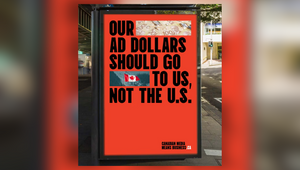
In the Retail Media Landscape, Are We All Media Owners?

In a discussion led by David Mildoon, vice president of MediaLink, the ‘Are We All Media Owners?’ talk at Advertising Week Europe kicked off with a discussion about Google’s delay in phasing out third-party cookies, the power of this data, and how each one of the panellists uses data within their own roles.
“The whole digital advertising industry is being built on the ability to target customers directly,” explained Tash Whitmey, loyalty and membership director at Tesco UK. She explained that whether this is in a digital environment or not, it relies on the first-party data which will go away at some point, and so organisations with an existing bank of data will benefit from this information in the long run.
“22 million customers, 27 years of day in and day out shopping,” Tash explained, is where Tesco is leveraging its data from. She also mentioned that many Tesco customers have consented to that first-party data, “that’s going to be really important,” she explained, “it’s not simply having the information at hand, but the actual consent which customers give to using that data as a brand.”
“We always use the platform to build audiences, to analyse customer behaviour to be able to work with our brands,” Tash explained. “So, we are going to be talking to the right people about things that they want us to talk about at the right moment.” She also mentioned how it not only helps to analyse digital attributions, but also what customers will continue to buy. “Collecting and consent for me is perhaps the primary point of things.”
In agreement with Tash and sharing the Deliveroo perspective, its chief global marketing and product officer Adam Bishop shares how they use data to help support certain behaviours or moments that benefit the business. “What we’re trying to do is enhance a moment,” he then gave examples such as a social family night or celebrating a promotion, and how to connect with those moments in a positive way using the data they have on hand. Which moment is best to deliver the right messaging to the consumer so that the brand is top of mind.
Kim Ludlow, head of international retail media sales at Microsoft Advertising EMEA, then shared, “If we go back to 10 years ago, brands were designed to get data attributed to the media that they serve us. And so for me, I think having the tools to be able to do that is essential to the brand, making it more sustainable but also leads to a more long-tail approach.”
From her point of view, Kim believes that it’s best for brands to be utilising data to create a future-facing plan and be smart about communications efforts. She then gives the example of getting married for the third time and being fed wedding content for months afterwards, something that was no longer relevant to her, and that actually, was a waste of valuable targeted ad space.
David posed a question about how operational structures surrounding retail media changed, and how each brand is using this in their operational flow.
“The first thing to say when thinking about this is that it isn’t a new space,” shared Tash. Going further into things, she shared that her aim is to use data to amplify the work Tesco is already doing with their supply partners, supporting retail growth with brand goals. Combining the two, for her, is the way to utilise the information they have to create a little magic.
Deliveroo, as Adam explained, working with many restaurants, grocers and retailers across the UK, is focused on relevancy models to help their partners, presenting things in a format which boosts engagement. His focus was also on creating sustainable growth for the company, making sure that their focus is consumer based.
From Microsoft’s perspective, Kim explained how they are looking forwards to the next wave of programmatic within the retail environment and how they’re helping brands adapt to those restrictions. “We are working with the IAB to create solutions,” she said as well as mentioning that there are different levels of maturity across the EMEA market she works within, so it’s about adapting to each.
“The UK, within EMEA, is the most mature. But then Germany just came into the space,” she said, explaining further, “What we need to do is have modular services that can actually enhance what we do today.” As Microsoft enhances their offerings and what it can do to support businesses, including developing AI solutions which she describes as “game changers”.
David then picked up on the fragmentation of AI, the different retail media networks on the market, the financial media networks – such as Chase Media Solutions in the US – and how CPG companies should manage the space.
“Anybody who uses it and sits and thinks, I’ve spent X and I don’t know the Y that came back, that’s going to be something to hone in on,” said Adam. And similarly, Tash shared, “We're at the start of the kind of big, big wave of growth. And so it will become more complex and confusing. So of course, the measurement side of that is standardisation – it's based on an idea of the shopper and standardisation and conversion of them.”
Sharing key pieces of advice within the space and to round the discussion off, Tash, Adam and Kim each stated what they believe retail marketers should focus on.
“Think customer first,” was Tash’s advice, “We’re not building a media company, we’re building a company which leverages first-party data.” She emphasises customer experience and being customer-first to achieve the best results. This is further supported by Adam, who went on to say that retail media experts should be thinking about creative effectiveness.
Finally, Tash rounded things off by saying that she believes we should be thinking about omni channels as the future. “Drive brand awareness, communicate to the shopper wherever they are on a website,” she explained and emphasised that at the point where the shopper wants to click on an ad to purchase, it should be an easy and helpful process.















